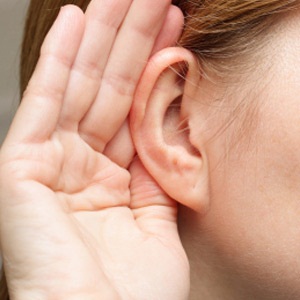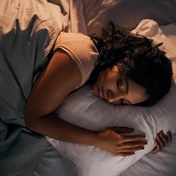
Sleep apnoea may not only affect the quality of your sleep. New research suggests that the sleep disorder may be linked to hearing loss as well.
The study found that sleep apnoea was associated with hearing impairment at both high and low frequencies. That finding held true even after the researchers adjusted the data for other possible causes of hearing loss.
These findings give further support to the idea that it is likely that sleep apnoea doesn't occur in isolation. Instead, it may be a sign of other underlying health conditions, the researchers said.
More like a chronic disease
"Sleep apnoea is more of a systemic and chronic disease than just something that happens when you're sleeping," said one of the study's authors, Dr Neomi Shah, an associate director of the pulmonary sleep lab at Montefiore Medical Centre in New York City.
"It probably affects multiple different organs, so I would probably urge that we start thinking about sleep apnoea as more like a chronic disease with vascular and inflammatory issues," Shah added.
Sleep apnoea is a common disorder that affects about 18 million Americans, according to the National Sleep Foundation. Typically signalled by snoring with periodic gasping or "snorting" noises, sleep apnoea interrupts sleep and can cause excessive daytime fatigue and other symptoms. The condition also has been associated with generalized inflammation, cardiovascular and endocrine problems.
What might the connection be between sleep apnoea and hearing loss? It might be a combination of factors that cause inflammation and abnormal functioning in the blood vessels, according to Shah. "The ear is prone to this kind of injury," explained Shah.
The study tapped data from almost 14 000 US participants in the Hispanic Community Health Study/Study of Latinos. About 53 % were women and on average the subjects were 41 years old. All completed in-home sleep studies and audiometric (hearing) testing.
Cuban and Puerto Rican backgrounds
About 10%of the study volunteers had sleep apnoea. Around 30% had some form of hearing impairment, according to the study.
The researchers took into account age, gender, Hispanic/Latino backgrounds and health-related issues such as high blood pressure, diabetes, fat levels in the blood, cigarette and alcohol use, history of hearing loss or snoring, and noise exposure.
People in the study were more likely to have hearing impairment if they were of Cuban and Puerto Rican backgrounds, had a higher body mass index (an indication of being overweight), were people who snored, or had been diagnosed as having sleep apnoea.
The study authors found that sleep apnoea was associated with a 31% increase in high frequency hearing impairment and a 90% increase in low frequency hearing impairment. Sleep apnoea was also linked to a 38% increase in both high and low frequency hearing loss. Speech tends to fall in the low frequency range, according to Shah.
The research is set to be presented at the American Thoracic Society annual meeting in San Diego, California. Because the study has not yet been published in a peer-reviewed journal, the data and conclusions should be viewed as preliminary.
Some experts urged caution in interpreting the results of the study, however.
Possible link discovered
"The number one thing I always say is that correlation is not causation; it doesn't mean if you have sleep apnoea you're at risk for hearing impairment," said Rebecca Spencer, a neuroscientist and associate professor in the department of psychological and brain sciences at the University of Massachusetts, Amherst. "You wouldn't know if one comes before the other: sleep apnoea appears before hearing loss, or hearing loss appears before sleep apnoea and maybe they don't come together at all. They may not be related except by a third factor."
Because a possible link has been discovered between sleep apnoea and hearing loss, the next step should be a smaller study that looks more closely at the question of whether sleep apnoea actually causes hearing loss, said Spencer.
She also pointed out that the data drew only from people of Hispanic and Latino descent. It would be important to look at the association between hearing loss and sleep apnoea among a broader ethnic and geographical group, she added.
Only one thing can be concluded from the study, Spencer said: "There is the potential that treating sleep apnoea may improve hearing loss."
Shah, the research author, said people with sleep apnoea should be screened for hearing impairment since it has been shown to be associated with the disorder. "Get evaluated," she urged.
Read more:
Hearing loss keeps workers awake
'White noise' machines may damage babies' hearing
Hearing loss tied to cognitive decline




 Publications
Publications
 Partners
Partners















